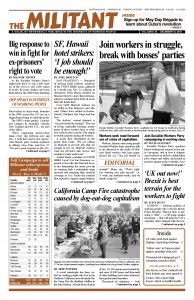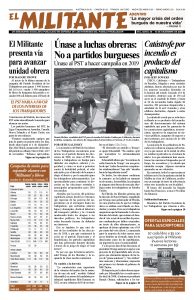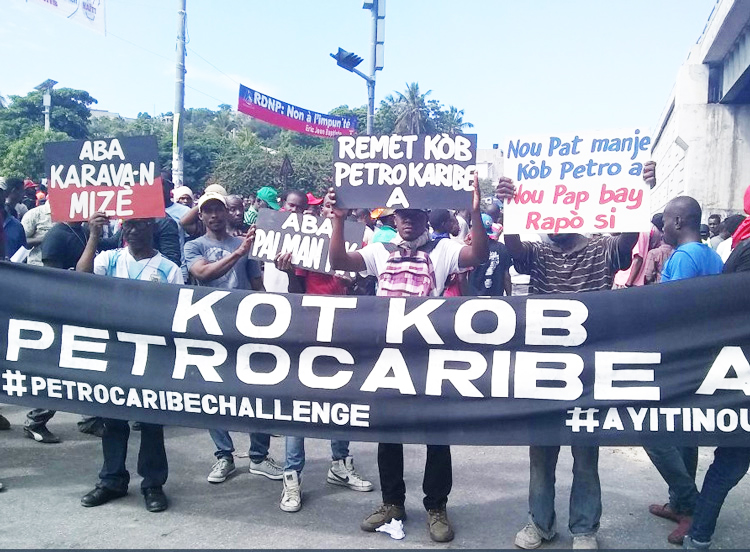Tens of thousands of people took to the streets across Haiti for several days and some went on strike starting Nov. 18, protesting government corruption and theft. The crisis of capitalist production, trade and jobs has hit hard in Haiti, one of the poorest nations in the world, after decades of U.S. imperialist exploitation. It was made even worse by the social calamity caused by a 2010 earthquake and Hurricane Matthew in 2016. Above, Nov. 18 protest in Port-au-Prince.
Massive protests, initiated by leaders of capitalist opposition parties, had swept the country a month earlier, after well-known filmmaker Gilbert Mirambeau Jr. and musician K-Lib sent out tweets demanding to know, “Where is the PetroCaribe money?” They were referring oil subsidies given to Haiti by the Venezuelan government. Many protesters call for the resignation of President Jovenel Moise.
The Haitian Senate carried out an investigation and charged that some $3.8 billion of the subsidies were stolen.
In July protests raged across the country after the government raised fuel prices by up to 51 percent, under pressure from the International Monetary Fund. The government announced the hikes during a soccer match between Brazil and Belgium, hoping that a victory for Brazil, which most Haitians favored, would distract attention. Brazil lost.
Within hours, Moise was forced to rescind the price hikes. A week later he replaced Prime Minister Jack Guy Lafontant.
“The government does not understand the level of indignation of working people,” Camille Chalmers, executive director of the Haitian Platform to Advocate Alternative Development, told the Militant in a phone interview from Port-au-Prince Nov. 26.
Chalmers said working people have been demanding an increase of the minimum wage from 335 gourdes ($4.50) to 1,000 gourdes per day as they’re wracked by spiraling inflation. A liter of milk costs $3, out of the reach of most workers. The price of sugar and corn has gone up 30 percent since 2014.
“And in the ‘free trade zone,’ some of the companies don’t pay even minimum wage,” Chalmers said.


